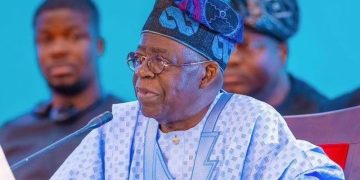China’s football squad will be limited to “three or four” Brazil-born players, a senior official told AFP, as ex-Chelsea star Oscar expressed an interest in becoming the latest Brazilian to represent the world’s most populous country.
Unless there is a radical policy change by FIFA, the Shanghai SIPG attacking midfielder will not be able to play for China because he has featured in competitive games for Brazil, including at the 2014 World Cup.
But it is indicative of a landmark shift in Chinese football that Oscar said, “I can think about (playing for China) because, as I said, it’s difficult to go to the Brazilian national team now because I’m here.”
Oscar, who moved from Chelsea for an Asian-record 60 million euros in January 2017, has seen Guangzhou Evergrande’s Brazil-born forwards Elkeson and Aloisio called up by China in the past year as they seek to qualify for the next World Cup in 2022.
At least three more Brazilians, also attackers, have become naturalised or are close to doing so, according to media.
But Chinese Football Association secretary-general Liu Yi laughed off the notion that ambitious China will turn into a team of Brazilians in a quick fix to reach the World Cup in Qatar.
President Xi Jinping wants China to become a football superpower but the country has made the World Cup only once, in 2002, when they left without a point or a goal.
“We had a little bit of concern when we gave the passport to Elkeson or whoever,” Liu said in a rare interview by a senior Chinese football official.
“But the good thing is that, dramatically, Chinese fans love to have a few (naturalised) players in the squad as long as they can make the Chinese team better and take us to the World Cup, hopefully Qatar 2022.
“I don’t see any resistance, honestly, but we need to develop. It’s not a long-term strategy or approach.”
Liu, speaking before Oscar’s comments came to light this week, added, “We’re not going to have two-thirds of the squad from Brazil.
The English-speaking Liu, 48, who took on the senior post in August last year, was talking from Suzhou, one of two cities hosting matches in this year’s rejigged Chinese Super League.
The CSL kicked off on Saturday, five months late and behind closed doors because of the coronavirus pandemic.
As part of strict safety measures, eight teams are stationed at a single hotel in Suzhou, near Shanghai, and the other eight in Dalian. Players cannot see their families for two months.
Dalian has seen a small cluster of infections in recent days and China recorded 68 cases nationally on Tuesday, the highest daily figure since April, although still far lower than many countries.
Liu said that while the first round of matches went “better than expected” and the small resurgence of the virus has had no real impact, he is on guard.
“We have another 13 rounds of the competition so this is just the start of the entire process,” he cautioned.
Several football leagues in Europe and Asia returned from the virus before the CSL, but Liu said, “Our central government, and I think it’s correct, they are more cautious about the lives.
“We were the first country and Wuhan was the first city to have an outbreak of the virus so we’re more cautious about what we’re doing, especially sporting and cultural events.
“We’re definitely going to put a brake on the season, but it would be very unlikely that we’d cancel it,” Liu said.































